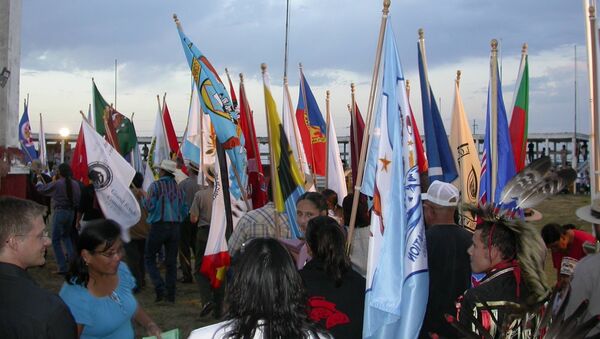MILWAUKEE (Sputnik) — Full-blooded Indians of the Cheyenne River Sioux tribe seek to be recognized as a disappearing indigenous group, the tribe elder Yvonne Clown told Sputnik.
"The full-blooded Indians, we are getting together to set up our own recognition, almost 3000, to get recognized as a disappearing indigenous group," Clown stated on Monday. "We are working on that currently."
Clown noted that only 2,748 full-blooded Indians left in the 24,000-member tribe, and explained what the process of recognition as a disappearing indigenous group is like.
"First, our tribe has to recognize us, and that's hard to get, and then we would go to the indigenous group, and the United States will have to be aware of that," she said.
"We have several societal issues. One of them is our tribe is centrally located in South Dakota, and there is no economy there, but ranching and farming," Clown said. "Not all 24,000 of us can be a rancher or a farmer. There are no businesses that are coming in there to set up jobs. We have a lot of water and a lot of land, but we are in central Dakota, and we are so isolated, that it's hard for companies they don't want to come here. It is hard for our health and education."
The elder also said the Cheyenne River Sioux tribe is experiencing a housing and education crisis as well as is fighting to preserve its native language.
The six-day event in Milwaukee, which kicked off on Sunday and will last through October 20, will focus on pressing matters, including tribal legislation, health, education and Native vote.
Established in 1944, the National Congress of American Indians is the oldest and largest non-profit organization representing US native tribes and the interests of tribal governments and communities.



